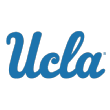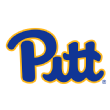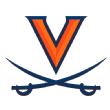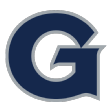The impact of last week's NBA draft combine and the pending May 24 withdrawal deadline for early draft entrants make all projections about the 2017-18 season uncertain.
But we know enough to size up the task ahead for a group of coaches who are guiding programs with vast potential and assorted challenges in the face of grand expectations.
How will some of college basketball's coaches fare in the coming season in light of the difficulties they must navigate?

Archie Miller, Indiana Hoosiers
Greatest challenge: Convincing Indiana it's OK to play defense
Hired by Indiana in March, Miller led one of the scrappiest teams in America to 24 or more wins in his last four seasons with the Dayton Flyers. For three consecutive years, Dayton cracked the top 50 in adjusted defensive efficiency, per KenPom.com.
Miller didn't have the elite recruits he might attract to Bloomington, but he had some dogs at Dayton, meet-me-in-the-alley players who anchored an Elite Eight run in 2014 that kicked off four consecutive NCAA tournament appearances. When you played Dayton under Miller, you knew the Flyers were coming to fight.
Indiana under Tom Crean often lacked that grit, especially on the defensive end.
The Hoosiers will move forward without NBA prospects OG Anunoby, James Blackmon Jr. and Thomas Bryant. Robert Johnson could stay in the NBA draft too.
Miller will need time to enhance the talent pool. But rebuilding the mindset of a group that finished outside the top 100 in adjusted defensive efficiency last season -- when the Hoosiers had four NBA prospects -- must start now.
Four-star freshman Justin Smith, sophomore De'Ron Davis and veteran Collin Hartman will lead Miller's first squad at Indiana. But the Hoosiers have to get tougher. Even with all the NBA talent, they didn't intimidate any opponents in 2015-16.

Steve Alford, UCLA Bruins
Greatest challenge: Rebooting after Lonzo Ball
Two years ago, Steve Alford had a top-25 recruiting class and talented returnees but finished 15-17 without a postseason berth. You know the story: "Fire Alford" banners flew, and criticism swirled around campus. Alford had a rough summer after the 2015-16 season.
The arrival of Lonzo Ball changed everything. Bryce Alford moved to the wing and blossomed. T.J. Leaf played like a lottery pick. Thomas Welsh became a pick-and-pop nightmare with his midrange game. That 15-win team from the previous season evolved into a national title threat.
Alford had top talent in the past. But he had never had a Lonzo Ball, a once-in-a-decade point guard. His 2017 recruiting class -- led by five-stars Kris Wilkes and Jaylen Hands -- is ranked No. 2 by ESPN.com. Once again, Alford has talent that few opponents will match.
But he's moving forward without one of the most impactful point guards of the past 10 years, a player who made his coach's life and job easier. Ball was the player who helped Alford salvage his reputation.
At a place such as UCLA, where cheers can become boos overnight, Alford has to keep the mojo going -- and that's a more challenging task in the post-Lonzo Ball era.

Dana Altman, Oregon Ducks
Greatest challenge: Rebuilding team chemistry
Altman led Oregon to the Final Four this year without injured big man Chris Boucher, who suffered a season-ending knee injury in the Pac-12 tournament. With Dillon Brooks, Jordan Bell and Tyler Dorsey, Oregon boasted the athleticism and size to defend and score at an elite level.
With that trio gone -- along with Boucher, Dylan Ennis, KaVell Bigby-Williams (transferred) and Casey Benson (transferred) -- Altman will rely on Payton Pritchard, New Mexico transfer Elijah Brown and five-star recruit Troy Brown Jr. They comprise a solid nucleus for a team moving forward without a fleet of NBA talent. But can that group come together this summer and give Oregon a chance to remain relevant in the Pac-12 race the season after the team reached the Final Four?
That's up to Altman.

Shaka Smart, Texas Longhorns
Greatest challenge: Winning
Smart is still trying to recapture the magic that made him the most coveted coach in America when he was at VCU. He led the Longhorns to the NCAA tournament in his first season. Then he entered the past season with a young roster that many picked to finish in the top tier of the Big 12 and return to the NCAA tournament.
That didn't happen. Top scorer Tevin Mack was dismissed from a team that finished 11-22. Mack eventually transferred. Jarrett Allen turned pro, and Andrew Jones might stay in the NBA draft too.
The Longhorns finished 21st in adjusted defensive efficiency, but they finished 177th in adjusted offensive efficiency. They turned the ball over on a fifth of their possessions. They made fewer than 30 percent of their 3-point attempts and just 65 percent of their free throws.
This wasn't a bad offensive team. The Longhorns were horrible. And if they don't improve, Smart will continue to face criticism and scrutiny that he never experienced at VCU. But his $22 million, nearly guaranteed contract runs through 2023, so he has security.
The good news is that four-star point guard Matt Coleman is the star of a top-10 recruiting class. The Longhorns will guard hard. Smart's squads haven't finished below the top 50 in adjusted defensive efficiency since 2011.
The offensive elements need work, though. Smart's team will continue to struggle if he fails to renovate the offense in 2017-18.

Kevin Stallings, Pittsburgh Panthers
Greatest challenge: Avoiding another embarrassing year
The success of former Pitt coach Jamie Dixon, who led TCU to an NIT championship in his first season in Fort Worth, made Stallings' job only more difficult at Pitt, where he went 16-17 last season. Now, Michael Young and Jamel Artis have graduated, and Cameron Johnson, the team's only returning starter, has transferred along with four other players.
The ship ain't sinking. It's resting on the ocean floor right now.
Dixon's growth at TCU could multiply the nostalgic thoughts of Pitt fans who wonder if they were mistaken when they sought more from Dixon in his final years. Now they're in the Kevin Stallings era and wading through a disastrous offseason.
If you're a team without a legacy, losing is the culture, so this wouldn't be a big deal. Last season, however, the Panthers missed the NCAA tournament for only the third time since 2002. Pitt expects to enter ACC play as a competitive unit.
Stallings has to fight off another embarrassing year.

Tony Bennett, Virginia Cavaliers
Greatest challenge: Creating a more balanced attack
Despite losing three key reserves to the transfer market, Bennett's squad should have enough depth to maintain its defensive dominance. But can the Cavs score? Rutgers grad transfer Nigel Johnson and Kyle Guy will carry the offense. Jay Huff and De'Andre Hunter, top-100 prospects from 2016 who redshirted last season, will help too.
But London Perrantes was the offensive catalyst for a team that fumbled through multiple second-half collapses and scored just 39 points against Florida in the second round of the NCAA tournament. And he's gone.
Offensive inconsistency cost a Virginia squad that lost five games by six points or fewer last season.
The Cavs can control the pace. They can hold opponents below 60 points. That's doesn't matter, however, if they're struggling to score 50.
Bennett has to produce a more reliable, versatile offense next season.

Patrick Ewing, Georgetown Hoyas
Greatest challenge: Everything
Can Patrick Ewing coach?
We don't know the answer to that question yet.
He has been an assistant and associate head coach in the NBA. He clearly knows the game. But the situation at Georgetown will demand a more holistic effort.
But he's Patrick Ewing. And being Patrick Ewing on the Georgetown campus will buy him a lot of time as the leader of a program coming off a 14-win season. Yet he has to deal with new challenges. He has to make sure his players handle their lives on the court and in the classroom. He has to deal with recruiting. Parents, boosters, alumni, administrators and AAU coaches will all want his time.
Oh, and he has to guide his program through the gauntlet known as the Big East.
For now, he just has to show the college basketball world that he's a capable head coach who can handle his new responsibilities -- because the homecoming tour, and the pageantry that comes with it, will eventually end. Just ask the son of Georgetown coaching legend John Thompson Jr.
At some point this season, we'll find out if Ewing can coach this program and begin to lead the Hoyas back to viability.
